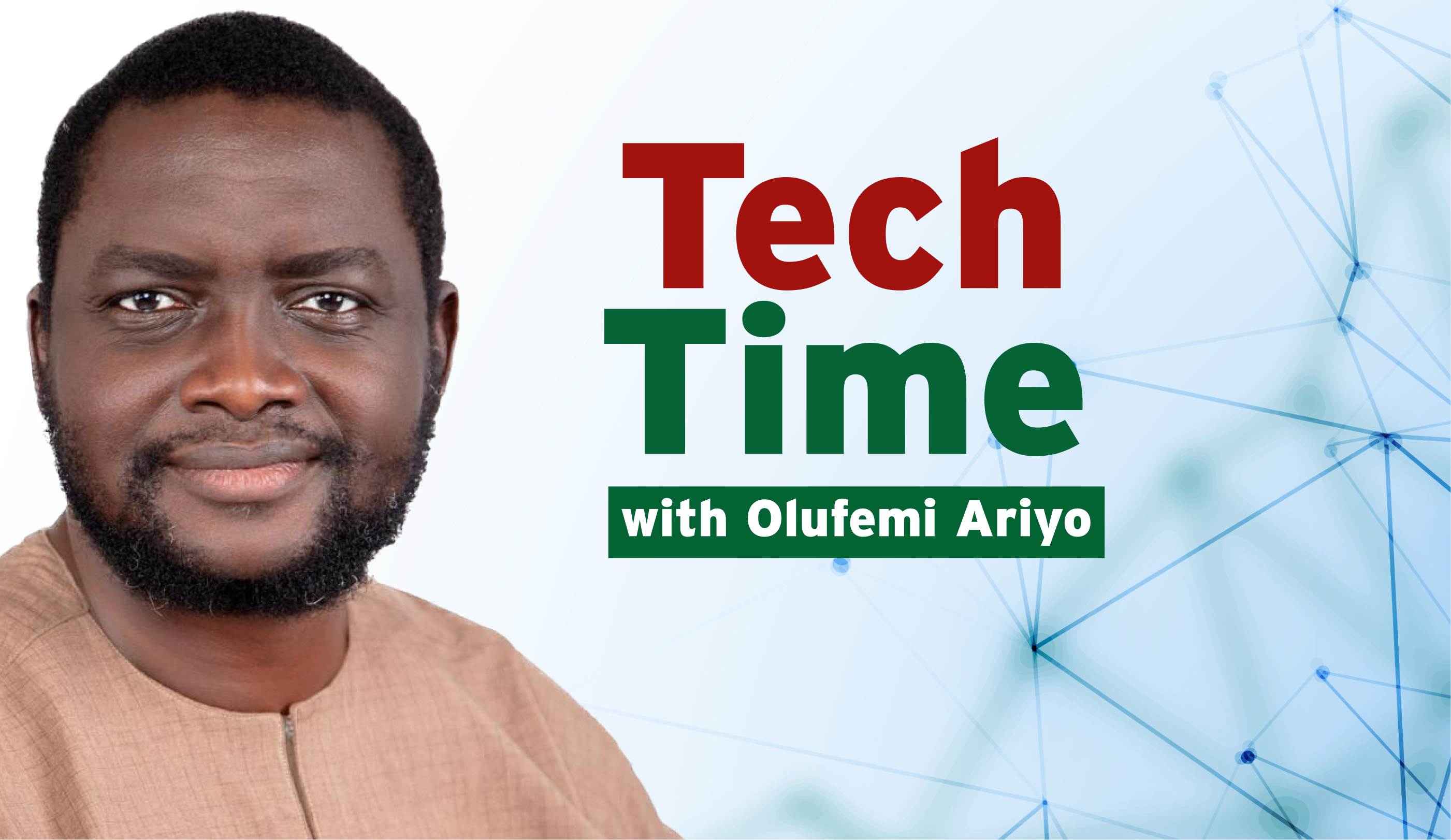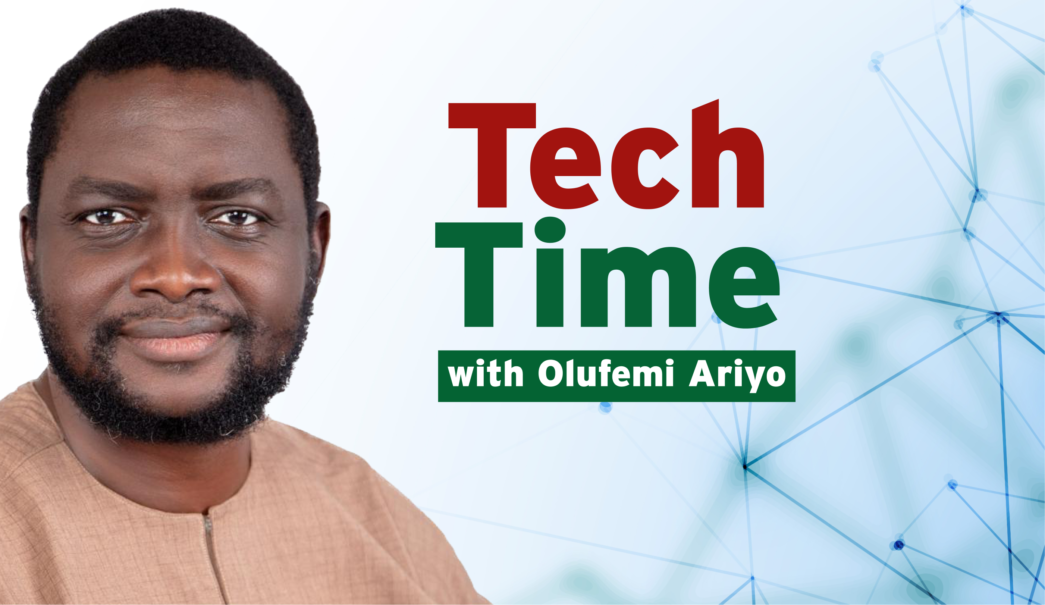In the modern world, the most valuable commodity is knowledge — everything else flows from it, says Elon Reeve Musk. Nigeria’s vibrant trading economy consisting of bustling open-air markets to thriving digital commerce often gives the impression that economic opportunity is within easy reach for many. Informal trade has long been a lifeline for millions, offering low barriers to entry and the potential for quick, tangible profits. In cities and towns across the country, entrepreneurship through buying and selling is not only common but often celebrated as a primary path to financial independence. Yet, beneath this surface of economic activity lies a critical question: Is trading alone enough to build a resilient, future-ready economy? While trading can offer short-term income, it rarely provides the structural foundation needed for long-term national development, innovation, or global competitiveness. In an era where knowledge drives economic growth, innovation, and social transformation, the need to prioritise education, digital literacy, and skills development has never been more urgent.
This article looks into why investing in knowledge is essential even when trading feels easy; and how integrating technology into education and commerce can help unlock Nigeria’s full economic potential.
- Trading Alone Has Structural Limits
Trading, the exchange of goods and services for profit, is often seen as a practical and accessible route to economic empowerment in Nigeria. For many, it provides a vital source of income, particularly in the absence of formal employment opportunities. The ease of entry into trading, requiring little more than basic capital and access to goods, makes it an attractive option for millions, especially youth and women. However, this apparent ease conceals significant structural limitations that restrict both individual advancement and national economic development.
Firstly, the low entry barrier that makes trading accessible also leads to over-saturation. With many individuals engaging in similar forms of buying and selling, markets become crowded, price competition intensifies, and profit margins shrink. This intense competition often drives traders into survivalist business models where innovation is low and growth potential is limited.
Advertisement
Secondly, the value addition in most trading activities is minimal. Traders frequently act as intermediaries, reselling imported goods without engaging in production or transformation processes. This not only limits local industrial development but also contributes to capital flight — where profits are funnelled back to foreign manufacturers rather than reinvested in the local economy. Over time, this dynamic weakens domestic industries and reinforces dependency on external economies.
Furthermore, without strategic business scaling or diversification, most traders hit a natural income ceiling. Operating within informal structures, they often lack access to financial services, business development training, and technology that could help them expand or formalise their operations. This stagnation traps many in a cycle of subsistence rather than sustainable prosperity.
In contrast, knowledge-based sectors (such as technology, engineering, healthcare, and finance) offer scalable, innovation-driven growth. These fields rely not on repetitive exchange but on the creation, application, and advancement of ideas and skills. They generate high-value products and services, attract global investment, and create jobs that are more resilient to market volatility.
Advertisement
Ultimately, while trading provides an important foundation for livelihoods, it cannot substitute for the transformative power of knowledge. A long-term vision for Nigeria’s economic development must go beyond the hustle of daily commerce to embrace education, innovation, and the strategic deployment of human capital.
- Knowledge Enhances Trading Efficiency
While traditional trading remains a backbone of Nigeria’s informal economy, the integration of knowledge and education into trading activities can notably amplify both efficiency and profitability. Today, being a successful trader is no longer just about buying low and selling high — it requires an understanding of digital tools, financial systems, market trends, and strategic planning. Knowledge is the key that transforms trading from a survival activity into a scalable enterprise.
One of the most critical enablers is digital literacy. As more consumers and businesses move online, traders with digital skills can access wider markets through platforms like Jumia, Konga, WhatsApp Business, and social media channels. These tools expand reach while also allowing for better customer engagement, inventory tracking, and real-time sales analytics. Furthermore, digital literacy enables the use of fintech solutions (such as mobile money, digital wallets, and point-of-sale systems) to facilitate seamless transactions, track earnings, and build financial records that may qualify them for business loans or credit facilities.
Beyond digital tools, financial literacy is equally important. Many traders operate without proper budgeting, saving, or reinvestment strategies, often mixing personal and business finances. With even basic financial education, traders can improve their business planning, manage risks more effectively, and make informed decisions about pricing, inventory, and growth. Access to credit becomes more viable when traders can present credible financial records and articulate clear business models — a direct result of enhanced financial knowledge.
Advertisement
Moreover, strategic thinking, which is cultivated through both formal and informal education, empowers traders to go beyond basic reselling. Educated traders are more likely to identify gaps in the market, understand consumer behavior, and innovate within the value chain — moving into product sourcing, packaging, logistics, or even local manufacturing. Some may explore export opportunities, leveraging trade agreements and regional markets to increase scale and revenue. This transition from informal hustle to structured enterprise deepens their economic footprint and creates employment opportunities for others.
In essence, while trading itself remains vital, its efficiency, scalability, and impact are notably enhanced when supported by relevant knowledge. Education does not replace trading but elevates it, making it smarter, more sustainable, and better positioned to contribute meaningfully to Nigeria’s economic development.
- Economic Diversification Requires Knowledge
Nigeria’s economy has long been characterised by an over-reliance on commodity exports, particularly crude oil, and a widespread dependence on informal trade. While these sectors have historically contributed to national revenue and employment, they expose the economy to several vulnerabilities. Global oil price fluctuations, foreign exchange volatility, and external market shocks can severely destabilise growth, fiscal planning, and job creation. This fragility has underscored a national imperative: diversification — and at the heart of that transition lies the need for knowledge.
True diversification goes beyond expanding the number of active sectors; it is about building resilient, high-value, and knowledge-driven industries that can sustain growth, attract investment, and provide meaningful employment. To achieve this, Nigeria must prioritise education and skill development, particularly in science, technology, engineering, and mathematics (STEM). STEM education equips individuals with the tools to drive local production, innovate solutions tailored to Nigeria’s context, and catalyse the shift from a consumer economy to a producer economy.
Advertisement
A critical component of this transformation is research and development (R&D). Through universities, research institutions, and innovation hubs, Nigeria can harness R&D to develop indigenous technologies, products, and services that respond to local challenges ranging from climate-smart agriculture and disease control to affordable housing and digital infrastructure. These innovations reduce dependency on imported solutions, retain capital within the country, and create new avenues for industrial growth.
Moreover, skilled professionals are essential to power the sectors that will define Nigeria’s economic future. Fields such as agritech, healthtech, renewable energy, and digital finance are not merely trends but strategic growth areas that can absorb the country’s growing youth population and align with global economic shifts. For instance:
Advertisement
- In agriculture, knowledge-driven innovations like precision farming, drone monitoring, and supply chain tech can improve food security and export capacity.
- In healthcare, mobile diagnostics, AI-powered health services, and telemedicine can bridge access gaps in underserved regions.
- In clean energy, engineers and technicians can build and maintain solar mini-grids, addressing Nigeria’s chronic power deficits.
- In digital finance, coders, analysts, and compliance experts can expand fintech ecosystems that support both formal and informal businesses.
These sectors offer more than simply economic returns but inclusive development, lifting communities and regions that have long been marginalised in the national economy.
In summary, economic diversification is not merely a policy target but a national survival strategy. And it cannot be achieved without deliberate investment in education, innovation, and human capital. A knowledge-driven economy is the only viable pathway to long-term stability, competitiveness, and prosperity in a rapidly changing global landscape.
Advertisement
- Global Competitiveness and Youth Empowerment
The global digital economy is a reality today, and knowledge is the most valuable currency. The nations that lead in education, research, and innovation are those dominating the world’s most lucrative and resilient industries — including software development, artificial intelligence (AI), biotechnology, clean energy, and advanced manufacturing. These are the industries that define the future, create high-paying jobs, and shield economies from the volatility of traditional commodity markets. For Nigeria to secure a competitive place on the global stage, it must prioritise knowledge-driven development, particularly by investing in its greatest asset: its youth.
Nigeria has the largest youth population in Africa, with over 70% of its citizens under the age of 30. This demographic reality presents both a tremendous opportunity and a potential crisis. With the right investments in 21st-century skills (such as coding, data analytics, critical thinking, digital literacy, and entrepreneurship) this youth population can become a powerful engine for innovation, productivity, and economic growth. But without these skills, millions of young Nigerians risk being left behind in an economy that increasingly rewards specialised knowledge over informal labor.
Advertisement
Empowering young people through education and skills training does more than just improve individual lives but directly enhances national competitiveness. In an interconnected marketplace where investors seek skilled labor, innovative ecosystems, and scalable solutions, countries that prioritise education attract more foreign direct investment (FDI). FDI, in turn, brings in capital, technology transfer, job creation, and links to global supply chains — all of which are essential for Nigeria’s long-term development.
Furthermore, a knowledge economy supports the growth of entrepreneurship. With access to information, digital tools, and global networks, young Nigerians can build startups that solve local problems and serve global markets ranging from fintech solutions tailored to unbanked populations, to edtech platforms addressing learning gaps, and to agritech innovations improving food systems. These knowledge-powered businesses tend to generate higher-paying, more stable jobs compared to informal trading or subsistence labor, creating a ripple effect across families and communities.
In essence, global competitiveness is no longer about natural resources but about human resources. And youth empowerment through knowledge is the most strategic investment Nigeria can make. By equipping its young population with the education and tools needed to thrive in the digital age, Nigeria can transition from a low-skill, resource-dependent economy to a high-skill, innovation-led powerhouse that competes and wins on the global stage.
- Social Stability and Governance
Beyond economics, the pursuit of knowledge and education plays a vital role in fostering social stability and good governance. An educated population is better equipped not only to contribute to national development but also to uphold democratic values, demand accountability, and resist the forces that lead to societal breakdown. In contrast, a society that is overly reliant on informal trade — with limited access to education and formal economic structures — risks becoming economically unstable and socially fragile.
One of the most immediate benefits of widespread education is poverty reduction. Knowledge opens doors to better-paying, more secure opportunities — in both the formal and informal sectors. Individuals with even a basic education tend to have higher incomes, better health outcomes, and increased access to financial tools and social services. When more people can earn a dignified living, dependency decreases, and communities become more resilient against economic shocks and hardship.
Education also strengthens civic engagement and governance. Citizens who are informed are more likely to vote, hold leaders accountable, and participate in shaping public policy. They understand their rights and responsibilities, advocate for transparency, and demand better services from government institutions. This creates a feedback loop of improved governance and stronger democratic institutions — both of which are essential for long-term stability and development.
In terms of security and crime reduction, there is a strong correlation between education and reduced criminal activity. When young people lack access to education or economic opportunity, they are more vulnerable to recruitment into criminal enterprises, extremist groups, or exploitative labor. On the other hand, education provides not only skills but a sense of purpose, identity, and belonging — key factors that reinforce peace and social cohesion.
A society that relies too heavily on unregulated trade (without the backbone of an educated, empowered population) is exposed to systemic risks. Informal economies are particularly vulnerable to inflation, currency devaluation, and market disruptions, as seen during pandemics or global recessions. Without a base of skilled workers, entrepreneurs, and critical thinkers, it becomes harder for such a society to adapt, innovate, or recover from crises.
In summary, education is more than a tool for personal advancement but a pillar of national stability. It reduces inequality, fosters responsible citizenship, lowers crime, and builds the social fabric necessary for a functioning, forward-looking democracy. For Nigeria to achieve sustainable peace, prosperity, and resilience, investing in knowledge is as much a social imperative as it is an economic one.
Introducing a Technology Perspective: Knowledge Activation Through Tech
While the case for investing in knowledge is well established, the true game-changer lies in how that knowledge is accessed, applied, and scaled — and in this regard, technology is the ultimate enabler. In a country like Nigeria, where traditional education and infrastructure systems often struggle with issues of access, funding, and reach, technology offers a leapfrogging opportunity: the chance to bypass outdated models and deliver transformative learning and empowerment directly to the people who need it most. By fusing technology with education, Nigeria can unlock a new wave of growth, inclusivity, and innovation — turning knowledge from an abstract goal into a living, accessible, and scalable force for change.
- Tech-Driven Education Access
A super promising interventions is the rise of e-learning platforms. Companies like Cloudnotte, uLesson, AltSchool Africa, and global tools like Khan Academy are already reshaping how Nigerians learn — from secondary school students preparing for exams to working professionals upskilling in digital fields. These platforms offer affordable, high-quality educational content that can be accessed anytime, anywhere, breaking down the traditional barriers of classroom location, teacher availability, and cost. Even more powerful is the use of mobile-based micro-learning. In a country where smartphone penetration continues to rise, especially among youth, short, engaging educational modules can deliver critical skills like financial literacy, digital marketing, customer relations, and small business management directly into the hands of traders, artisans, and informal workers. These bite-sized lessons (often offered in local languages) meet people where they are, in both geography and circumstance.
In addition, emerging technologies such as AI-powered tutoring and adaptive learning systems are revolutionising the way individuals interact with content. These tools can assess a learner’s strengths and weaknesses in real time, customising the pace, style, and focus of instruction to suit individual needs. This personalised learning approach helps students — especially those in underserved or overcrowded educational systems — achieve better outcomes, retain more knowledge, and stay motivated over time. Beyond individuals, tech-enabled education platforms also support teachers and facilitators, offering training resources, curriculum planning tools, and performance analytics that can raise the overall quality of instruction across both formal and informal settings.
In short, technology transforms knowledge from a privilege into a public good. With the right digital infrastructure and policy support, tech-driven education can close access gaps, bridge urban-rural divides, and equip millions of Nigerians (especially youth and women) with the skills they need to thrive in today’s and tomorrow’s economy. And this is just the beginning. In the sections that follow, we will explore how technology continues to shape financial inclusion, entrepreneurship, and access to global markets — all critical for turning Nigeria into a knowledge-powered, tech-enabled economy.
- Digital Tools for Traders and SMEs
Nigeria has a bustling informal economy, and traders and small-to-medium enterprises (SMEs) are the heartbeat of commerce. Yet, many still rely on manual processes, paper records, and face-to-face transactions — methods that, while familiar, limit growth, efficiency, and resilience. Fortunately, digital tools are transforming how traders and SMEs operate, offering low-cost, scalable solutions that enable even the smallest businesses to function like larger, more organised enterprises.
One of the most impactful shifts has come through the adoption of point-of-sale (POS) systems, mobile payment platforms, and inventory management apps. These technologies help traders accept cashless payments, track stock in real-time, and monitor daily sales — reducing errors, increasing transparency, and building a foundation for better business decisions. Importantly, they also help traders build financial histories, which can be critical when applying for micro-loans or grants.
Platforms like Paystack, Flutterwave, and Bumpa have been especially influential. Originally built to serve formal online businesses, these fintech and e-commerce solutions have expanded to support informal vendors and small shops. For instance, Bumpa enables traders to create digital storefronts, manage inventory, send invoices, and receive payments, all through a simple mobile app. This means that even a market stall operator can now sell to customers across Nigeria — or internationally — without needing a website or office.
Beyond these core tools, artificial intelligence (AI) is beginning to play a role in supporting non-experts in making smarter business decisions. AI-powered chatbots can answer customer inquiries, take orders, or guide users through digital platforms in local languages. Meanwhile, analytics dashboards powered by AI can help traders understand their best-selling products, peak sales periods, and customer behavior — all without needing formal training in data science. These technologies do more than streamline operations; they level the playing field. A young entrepreneur in Ibadan, a haircare vendor in Aba, or a tomato seller in Jos can now operate with the same digital tools as large corporations — accessing new markets, improving customer service, and making data-informed decisions.
Crucially, these tools also foster business resilience. During periods of disruption (such as pandemics, inflation spikes, or fuel shortages) digital platforms allow business to continue remotely, adapt quickly, and even shift business models on the fly. In a rapidly changing economy, digital empowerment is business survival.
In sum, technology is not merely helping traders do what they have always done but helping them do it better, smarter, and at greater scale. By integrating digital tools into daily operations, Nigeria’s traders and SMEs can unlock new growth opportunities and contribute more meaningfully to a modern, inclusive economy.
- Market Access Through Technology: Nigeria and the Global Stage
Our interconnected world reveals that market access is no longer confined by geography. For Nigerian traders and SMEs, technology is unlocking the ability to reach customers far beyond local markets, enabling growth on a scale that was once unimaginable. However, when compared to international giants like Alibaba, Nigeria’s e-commerce and logistics ecosystem still has room to grow (both in sophistication and scale) to fully harness the power of technology for market expansion.
E-commerce platforms such as Jumia, Konga, and the increasingly popular WhatsApp Business have changed how Nigerian traders engage with customers. These platforms offer accessible digital storefronts, allowing sellers to showcase their products, receive orders, and manage transactions remotely. WhatsApp Business, in particular, has been a game-changer for informal traders, providing a simple, familiar interface to connect directly with buyers and process sales without heavy upfront investment.
On the global stage, platforms like Alibaba and Amazon operate on an even larger scale, with highly integrated ecosystems that combine marketplaces, payment systems, logistics, and cloud services. Alibaba’s success lies in its ability to connect millions of small businesses to customers worldwide through sophisticated algorithms, extensive supplier verification, and seamless cross-border logistics. It also leverages data analytics and AI to optimise user experience and drive sales at scale. While Nigerian platforms are rapidly evolving, they are still catching up in terms of infrastructure, user trust, and integration.
One promising frontier where Nigeria can leapfrog is through blockchain technology and smart contracts. These innovations have the potential to secure supply chains, enhance transparency, and reduce fraud — critical issues in markets where counterfeit products and payment disputes are common. International players are already piloting blockchain solutions to authenticate goods and automate contract execution, reducing delays and increasing buyer confidence. For Nigerian traders, adopting such technology could build trust with both local and international customers, smoothing cross-border trade and fostering new business partnerships.
Another critical component is logistics technology, a sector where Nigerian startups like Kobo360 and GIG Logistics are making strides. These companies are using digital platforms to connect shippers with transport providers, optimise delivery routes, and provide real-time tracking — crucial for overcoming Nigeria’s infrastructure challenges and fragmented distribution networks. This mirrors how global giants such as Alibaba’s Cainiao network or Amazon’s logistics arm operate, integrating warehousing, last-mile delivery, and data analytics to ensure timely, cost-effective service.
However, the scale and efficiency of Nigeria’s logistics sector still lag behind these international benchmarks. High transportation costs, infrastructural gaps, and regulatory hurdles continue to limit how far and fast goods can travel, constraining traders’ ability to scale. Continued investment in digital logistics solutions, alongside government support for infrastructure and regulatory reform, will be essential to bridge this gap.
In summary, Nigeria’s technology-driven market access tools are powerful catalysts for economic growth, enabling traders to expand beyond traditional boundaries. Yet, when benchmarked against global players like Alibaba, the Nigerian ecosystem is still in a developmental phase — full of potential but requiring strategic investment, innovation, and integration. By learning from international best practices and leveraging emerging technologies such as blockchain and AI, Nigerian traders can position themselves as more than mere local sellers, but as competitors on the global stage.
- Bridging the Knowledge-Practice Gap
One of the most critical challenges in Nigeria’s journey toward a knowledge economy is bridging the gap between theoretical education and practical, income-generating skills. Traditional educational systems often focus on theory and exams, leaving many graduates ill-prepared for the demands of the modern labor market. Here, technology-driven vocational training and innovation ecosystems play a transformative role, equipping Nigerian youth with the hands-on skills necessary to thrive in today’s dynamic economy.
Tech-enabled vocational training programs are addressing this gap by offering targeted, skills-based learning in high-demand areas such as digital marketing, coding, agritech, and fabrication. These programs are designed to be flexible, accessible, and industry-relevant, ensuring participants can quickly apply what they learn to real-world scenarios. For example, digital marketing courses teach not just theory but practical skills like running social media campaigns and using analytics tools, which traders and startups can leverage immediately to grow their businesses.
Leading platforms such as Andela and Decagon have already demonstrated the power of this approach. Both organisations specialise in training Nigerian youth for global technology jobs, particularly in software development and data science. Andela, for instance, identifies talented individuals, provides rigorous remote training, and connects them with international companies seeking skilled developers. Decagon offers an intensive software engineering bootcamp that blends theory with hands-on projects and mentorship. Through these initiatives, thousands of Nigerian youth are gaining practical skills, access to well-paying jobs, and exposure to global best practices.
Beyond individual training, incubators and innovation hubs like Co-Creation Hub (CcHub) and NG_Hub play a crucial role in translating knowledge into tangible products, services, and scalable startups. These hubs provide resources such as mentorship, funding, workspace, and networking opportunities, creating vibrant ecosystems where ideas can be developed, tested, and brought to market. They encourage collaboration across disciplines, connecting coders with designers, business experts, and investors — a critical ingredient for successful innovation.
By fostering a culture of practical problem-solving and entrepreneurship, these hubs help bridge the divide between academic knowledge and economic impact. Startups emerging from these spaces are tackling local challenges with tech-enabled solutions, from fintech apps that improve financial inclusion to agri-tech platforms that increase farm productivity.
In summary, bridging the knowledge-practice gap is essential for Nigeria’s youth to convert education into economic opportunity. Through tech-enabled vocational training and vibrant innovation ecosystems, young Nigerians are not only acquiring relevant skills but also building enterprises that drive job creation and sustainable growth. This dynamic integration of knowledge and practice will be a cornerstone of Nigeria’s transition to a thriving, inclusive knowledge economy.
- Policy-Tech Synergy
For Nigeria to fully harness the power of knowledge and technology, there must be a synergistic relationship between policy and tech innovation. Effective governance frameworks and data-driven decision-making can amplify the impact of technological advances, creating an environment where knowledge can flourish and contribute to inclusive, sustainable development.
One of the most notable ways technology supports policy is through data analytics. Nigeria’s informal economy, which employs a vast majority of its population, has traditionally been difficult to measure and regulate due to its size and complexity. Advanced data analytics tools enable policymakers to gather accurate, real-time information on informal sector activities — from transaction volumes to employment patterns. This enhanced visibility allows for the design of targeted, evidence-based interventions that address specific challenges such as tax compliance, access to credit, and social protection. Rather than relying on broad-brush policies, the government can implement precision strategies that support informal traders and entrepreneurs while integrating them into the formal economy.
In addition, e-governance platforms are revolutionising how citizens and businesses interact with the state. Digital services that streamline education funding applications, business registration, and legal protections reduce bureaucratic bottlenecks and corruption, making it easier for individuals and enterprises to engage with government programs and comply with regulations. By simplifying these processes, e-governance fosters a knowledge-friendly environment where education and entrepreneurship can thrive without being hindered by administrative barriers.
Policy also plays a critical role in supporting EdTech growth and digital inclusion. Strategic frameworks that encourage the development and deployment of educational technologies ensure that innovations reach underserved populations — particularly women, rural communities, and low-income groups who often face the greatest barriers to knowledge access. Digital inclusion programs, including subsidies for internet access, device distribution, and localised content creation, help bridge gaps in access and empower marginalised groups to participate fully in the knowledge economy. Importantly, such policies promote equity and social justice, ensuring that technological progress does not deepen existing inequalities but rather contributes to a more inclusive society.
In summary, policy-tech synergy is essential for creating a robust ecosystem where knowledge can be generated, shared, and applied effectively. By leveraging data analytics, embracing e-governance, and championing inclusive EdTech policies, Nigeria can build a supportive infrastructure that accelerates its transition to a knowledge economy — one that benefits all citizens and positions the country for long-term prosperity.
Conclusion: Knowledge + Tech = Sustainable Empowerment
Knowledge is power. Information is liberating. Education is the premise of progress, in every society, in every family, says Kofi Anan. While Nigeria’s trading economy may appear “easy” and accessible, it faces major limitations in terms of sustainability, scalability, and inclusivity. Relying solely on trading constrains long-term economic growth and leaves many vulnerable to market shocks and income stagnation. Pursuing knowledge, therefore, is essential — it lays the foundation for lasting economic empowerment, social stability, and global competitiveness.
However, knowledge alone is not enough. Technology acts as a powerful accelerator, improving how knowledge is acquired, applied, and scaled across diverse populations. By democratising access to education, financial services, and markets, technology enables millions of Nigerians (especially youth and marginalised groups) to actively participate in the growing digital economy. It bridges gaps, creates new opportunities, and drives innovation that can transform entire sectors.
The fusion of knowledge and technology is no longer optional but a strategic imperative for Nigeria’s future. It is the pathway to building a diversified, resilient economy that not only withstands global uncertainties but thrives in them. Through this synergy, Nigeria can empower its citizens sustainably, promote inclusive growth, and carve a prominent place in the global knowledge economy. In essence, the combination of knowledge and tech is the engine that will drive Nigeria’s transformation and ensure prosperity for generations to come.
Thank you for the investment in time. If this perspective resonates with you, let’s continue the conversation — whether you’re an entrepreneur, policymaker, educator, or innovator. You can get more of my curated thoughts on Medium: https://medium.com/@roariyo and LinkedIn: https://www.linkedin.com/in/olufemiariyo/ or send an email to [email protected]











